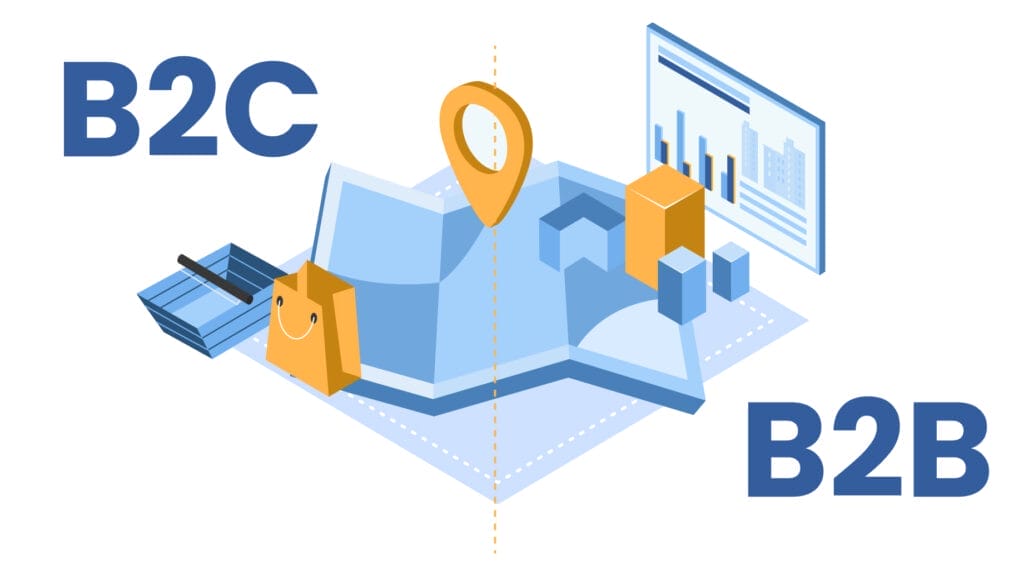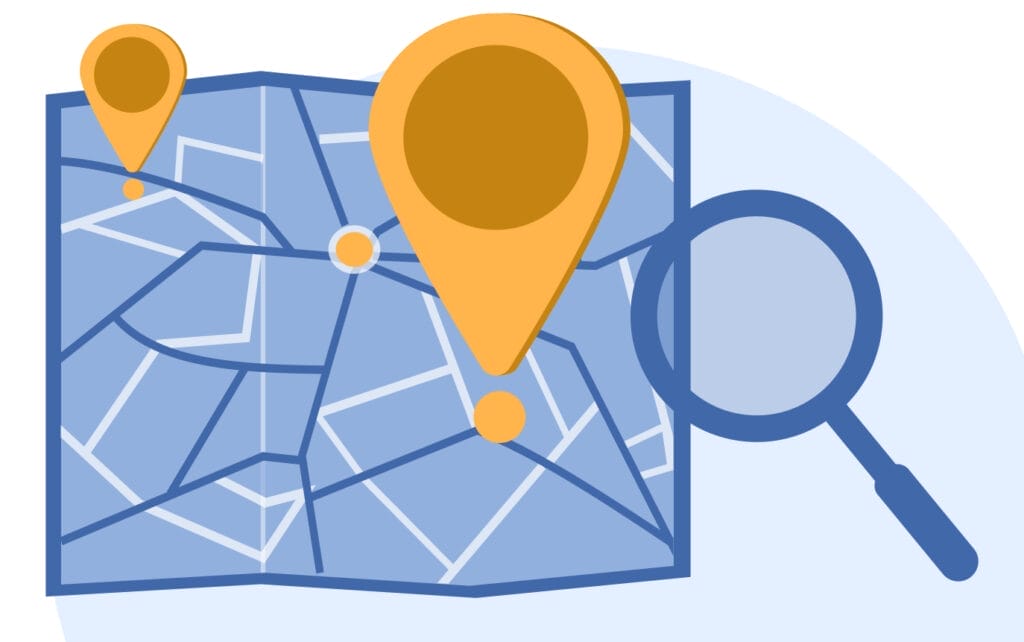The ideal location can help your B2B franchise, turning potential into profit and insights into outcomes. Identifying ideal B2B franchise locations is a strategic process that demands more than just a good sense of geography—it requires an understanding of business dynamics and market forces.
Here, you’ll find not just the ‘where’ but the ‘why’ and ‘how’ of choosing spots that will propel your franchise to success.

Understanding the B2B Franchise Landscape
When entering the world of franchising, distinguishing between B2B (business-to-business) and B2C (business-to-consumer) models is critical for aligning your strategy with your business goals. Each model offers distinct challenges and opportunities, which are influenced greatly by the choice of location.
B2B Franchise Models Explained
- Target Market: Unlike B2C franchises that cater directly to the consumer’s needs, B2B franchises deal primarily with other businesses as their customers. This fundamental difference influences everything from marketing strategies to hours of operation.
- Sales Cycle: B2B transactions typically involve longer sales cycles. Relationships are built on trust and repeated interactions, often requiring a deeper understanding of the client’s business and its needs.
- Revenue Model: Due to the nature of contracts and bulk purchasing, B2B models can offer more stable and predictable revenue streams once agreements are in place.
Key Differences Between B2B and B2C Franchise Locations
Site Selection
- Visibility: B2C locations thrive on high foot traffic and visibility to the general public. In contrast, B2B franchises benefit from being closer to business districts and commercial areas where their client businesses operate.
- Accessibility: For B2B, proximity to major transportation hubs and networks can be more crucial than for B2C, as it facilitates easier access for client meetings and operations.
Operational Considerations
- Hours of Operation: B2B franchises often operate within standard business hours, which aligns with their clients’ schedules. B2C franchises may have extended hours to maximize consumer accessibility.
- Facilities and Layout: B2B locations might require different facilities like conference rooms for client meetings, whereas B2C focuses more on retail space and customer flow.
Regulatory Environment
- Zoning and Permits: B2B franchises may face different zoning laws and permit requirements, especially in heavily industrialized or commercial zones, depending on the location you choose, compared to B2C setups, which are often retail or service-oriented.

Critical Factors for Choosing the Right Location
Finding the ideal location for a B2B franchise requires an evaluation that should consider several factors.
Market Research
Local business density and identifying potential B2B customers are key to choosing a franchise location. Start by looking at the number of businesses in potential areas. High-density business areas will have more networking opportunities and client access, which is essential for building relationships. Research local industries and the major players that would benefit from your services so you can tailor your franchise to meet local needs.
Accessibility and Visibility
For B2B franchises, positioning that makes it easy for business clients to get to you is key. Locations should be easy to get to, close to business hubs to reduce travel time and make client interactions easier. Also, look at the availability and reliability of public transport, main roads and highways. Good transport links are essential for timely deliveries, commuting and maintaining operational connections.
Competition and Market Saturation
Analyze the competition and find niches in underserved markets, and you’ll stand out from the crowd. Look at how saturated the market is with similar B2B services. Knowing who your competitors are, their market share and their service quality gives you an edge. Also, targeting underserved or emerging sectors can be a growth opportunity.
Economic Environment
The overall economic conditions of your chosen location can affect the viability and growth of your franchise. Research the economic health of the area, growth rates, investment and employment rates. Areas that are stable or growing are best for launching B2B franchises. Also look at local business incentives and support from the local government, tax breaks, funding grants and resource support that can reduce the initial costs and boost business growth.

Tools and Technologies for Location Analysis
Choosing the right location for a B2B franchise is a process that greatly benefits from advanced tools and technologies.
Geographic Information Systems (GIS)
GIS technology has revolutionized site selection by allowing businesses to visualize and analyze geographical and demographic data effectively. With GIS, franchise owners can assess various factors such as demographic distribution, traffic patterns, and competitive landscapes.
This technology enables a visual assessment of how different areas meet the strategic needs of a business, aiding in the decision to choose locations with optimal client density and accessibility.
Market Research Tools and Software
Beyond GIS, a range of market research tools and software further supports informed decision-making. Data analytics platforms aggregate and analyze data on market trends and economic conditions, providing insights into potential areas for business growth.
Additionally, customer relationship management (CRM) software can be leveraged to understand where current and potential clients are concentrated, influencing location choices based on service expectations.
Online survey tools also play a role, allowing direct engagement with potential business clients to understand their location-related needs and preferences better.
Utilizing Professional Location Planning Consultants
Interpreting the vast amounts of data gathered can sometimes require a human touch. Professional location planning consultants bring a level of expertise that complements technological tools.
These consultants offer tailored advice based on specific franchise needs, perform risk assessments to pinpoint potential challenges with certain locations and utilize their extensive networks to facilitate introductions to local businesses and government entities. Their insights can be invaluable in navigating complex market dynamics and making sure that the selected location aligns with both strategic goals and operational needs.
Secure Your B2B Franchise’s Future Through Strategic Location Choices
Identifying the ideal location for your B2B franchise is a crucial step beyond mere geographic selection. It involves a detailed understanding of market dynamics, accessibility, competition, and economic trends, supported by cutting-edge tools and expert insights.
By carefully analyzing these factors and employing strategic location analysis, you position your franchise for sustained growth and success in a competitive business environment. Harness these insights and take the leap toward securing a profitable and promising future for your B2B franchise.


